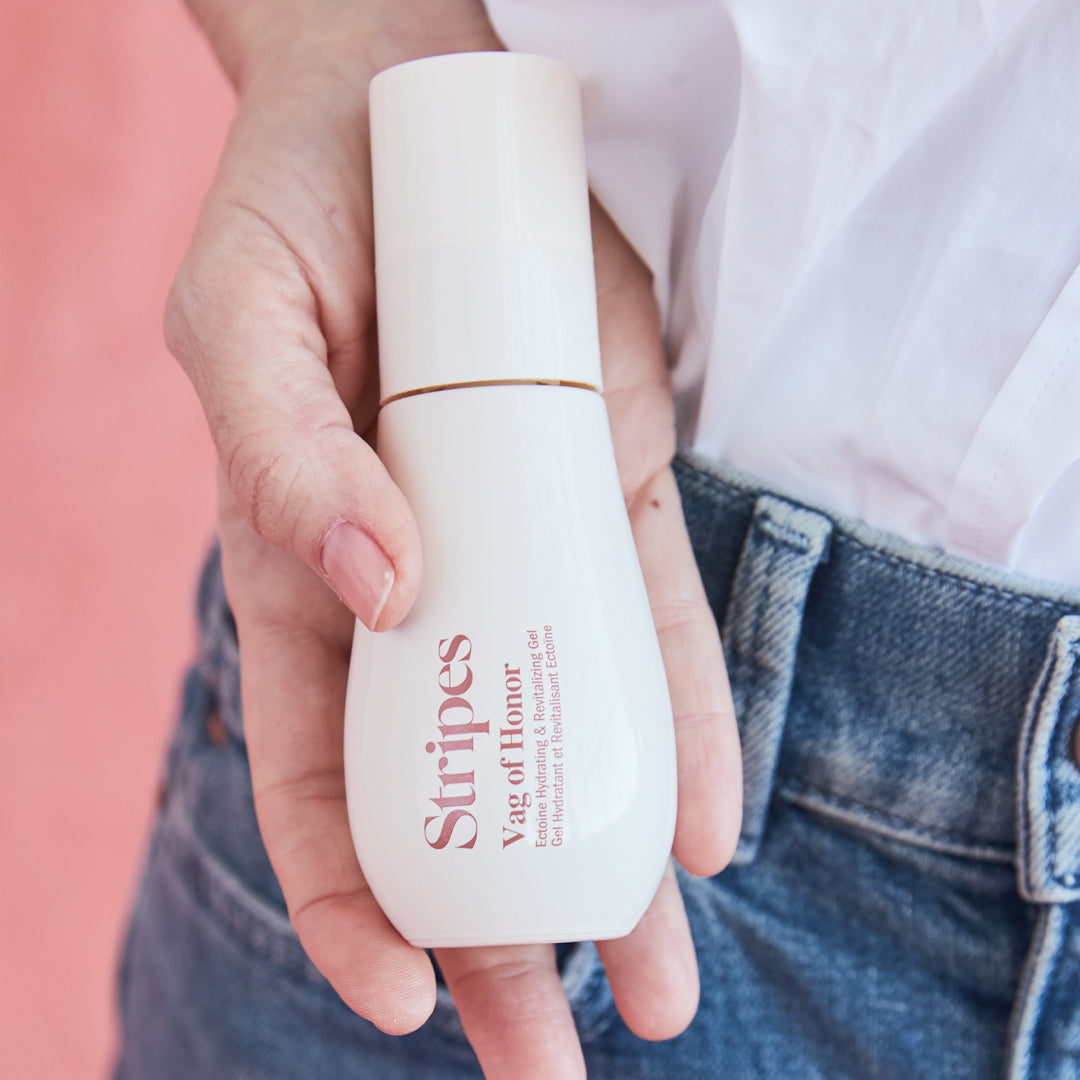When you’re going through it — and by “it,” we mean the physical and emotional rollercoaster of (peri)menopause — beating yourself up is far too easy. Yeah, menopause is a natural, biological process, but you might feel ashamed of how your body’s changing, or you may be angry about how these changes are impacting your confidence and relationships.
First of all, you’re far from alone. Studies suggest women often feel worse about themselves and their bodies during this huge hormonal shift. While your suddenly dry vagina and brutal hot flashes might be throwing you for a loop, being mean to yourself about them — or literally anything else, for that matter — isn’t going to fix what’s happening. In fact, being a bully to yourself is probably going to make you feel more miserable.
The antidote? A healthy dose of self-compassion. A growing body of research shows treating yourself as you would a good friend who’s struggling can improve mental health and stave off stress, which we know is a huge part of controlling menopause symptoms (a win-win!). “When you learn to practice self-love, you’ll be able to better practice self-care,” says Markesha Miller, a clinical psychologist based in Columbia, South Carolina.
Here are six practical ways to be nicer to yourself during your sex hormone slump.
Question your mean thoughts
If you’re used to being hard on yourself, shifting your self-talk from mean to kind can take some time. “When you speak negatively to yourself for a long time, you really begin to believe that message,” says Miller.
Good thing your brain is adaptable! Start paying attention to your thoughts and how they make you feel. When you notice yourself veering in the direction of self-bullying, slow down. Would you tell your best friend or your daughter she looked fat or that nobody liked her? Our guess is no way, so work on not saying those hurtful things to yourself, either.
Speak words of encouragement out loud
What encouraging words or comfort do you need to hear most right now? Maybe that your frustrating symptoms are temporary, or that even when sh*t hits the fan you’ve got the support to get through. Don’t wait for someone else to tell you exactly what you need to hear — instead, say those comforting words out loud to yourself, even if you don’t quite believe them. Your brain, it turns out, can still process support, even when it comes from you.
Compliment yourself (seriously)
You might feel like your flaws — whether your body’s appearance or the way you feel physically — are front and center before, during, and after menopause. Each time you feel down on yourself about all this (picture us gesturing broadly), make an effort to dole out a compliment to yourself and mean it. Focus on the parts of your personality, body, and life that you like. OK, having an awesome butt won’t fix the fact you’re coated in sweat 24/7, but you won’t be so tempted to focus on the negative when you remind yourself of something you love.
Pair that compassion with self-care
Self-compassion is a way of thinking, and self-care is a way of acting. To show yourself the love you deserve during this trying time, you need both. Let your kind thoughts spark curiosity about what you really need right now. Maybe your body is begging you for some rest, or your mind needs a break from the responsibilities of your home life. Maybe you need a gigantic salad, or perhaps your body’s asking for a gooey cookie. Either way, show yourself you care by following through on your needs. Your stress levels will naturally decrease in the process.
Learn more about what you’re going through
Sure, it’s a beautiful time and a new life phase, but no matter how you spin it, menopause is hard. Taking some time to learn about all the hard work your body is doing as it adjusts to a period-free life can help you ditch harmful cultural stigmas about this stage in your life so you can show yourself more compassion (and learn new ways to manage your symptoms).
Don't go at it alone
Connecting with others who’ve gone through menopause or are currently experiencing it is a hugely helpful way to be nicer to yourself, too. You’ll feel less shame over your experience when you know you’re not alone — and getting some much-needed empathy from someone who genuinely cares about you is very good practice for giving it to yourself.
Put yourself first. You can do it.
And when you feel guilty for prioritizing you? Remember, your self-love and self-compassion expands your capacity to care for those around you. “When you prioritize your own well-being,” says Miller, “your physical, mental, and emotional health will see great benefits, but you’ll also have stronger relationships with others.”
Looking to connect with a community of women who know what you're going through? Check out The Hot Spot!











